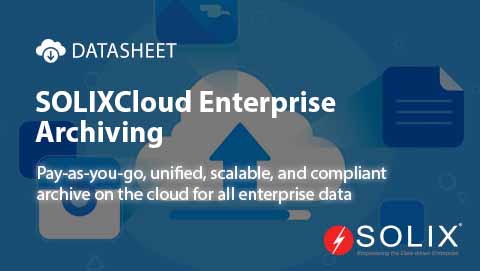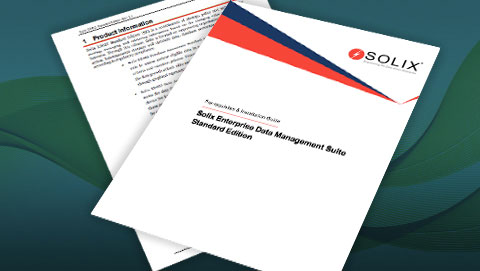Data Compliance
What is Data Compliance?
Data compliance refers to the data governance structure that ensures an organization’s data practices adhere to relevant laws, regulations, and industry standards. It involves protecting sensitive information, ensuring data accuracy, and respecting individuals’ privacy rights. The regulations and standards surrounding the business define what data needs to be protected and the most suitable processes to do so.
Some of the most common data compliance regulations include GDPR (General Data Protection Regulation), HIPAA (Health Insurance Portability and Accountability Act), and CCPA (California Consumer Privacy Act). Non-compliance with these regulations might lead to legal repercussions, monetary penalties, and reputational damage.
Why is it important for Businesses?
Data Compliance is paramount for businesses as it is the foundation for establishing trust, safeguarding reputation, and mitigating legal risks. Adhering to data protection regulations ensures that sensitive information is handled responsibly, reducing the likelihood of data breaches and potential legal consequences.
Beyond legal obligations, data compliance fosters customer confidence by demonstrating a commitment to privacy and ethical business practices. In an era where data is a strategic asset, businesses that prioritize compliance not only protect themselves from financial and legal pitfalls but also gain a competitive edge by building lasting customer trust and loyalty.
Several regulations require businesses to audit the data they hold periodically, allowing businesses to identify and dispose of redundant, obsolete, and trivial files while archiving past data that enterprises have legal obligations to hold. This allows businesses to have robust data management processes, which in turn allow for greater value to be derived from their data assets.
Key Considerations
Given below are a few critical aspects to consider to ensure adherence to compliance regulations:
- Data Protection:
Implement robust measures to safeguard sensitive information from unauthorized access, disclosure, alteration, and destruction.
Utilize encryption, access controls, and secure storage solutions to protect data in transit and at rest.
- Privacy Policies:
Clearly define and communicate your organization’s privacy policies to users and stakeholders.
Ensure transparency regarding data collection, processing, and storage practices.
- Consent Management:
Obtain explicit consent from individuals before collecting and processing their personal data.
Maintain a record of consent and provide mechanisms for individuals to withdraw consent if needed.
- Data Governance:
Establish clear data governance policies and procedures to ensure data quality, integrity, and accountability.
Define roles and responsibilities for managing and overseeing data compliance efforts.
- Regulatory Compliance:
Stay informed about relevant data protection laws and regulations, such as GDPR, CCPA, HIPAA, or other industry-specific requirements.
Conduct regular assessments to ensure ongoing compliance with evolving regulations.
Types of Data Compliance Regulations
The data compliance landscape is ever-changing, with newer policies and regulations defining how enterprises must manage their data to do business.
Some data compliance regulations and standards include:
- General Data Protection Regulation (GDPR):
GDPR is an EU regulation safeguarding individuals’ privacy by imposing strict rules on the collection and processing of personal data. Enforced in 2018, it grants individuals greater control over their data, emphasizing transparency, consent, and the right to access or erase personal information.
- California Consumer Privacy Act (CCPA):
CCPA is a California state law protecting residents’ privacy rights. Enacted to regulate businesses, it provides consumers with the right to know, delete, and opt-out of the sale of their personal information. Compliance involves transparent data practices and improved privacy disclosures.
- Health Insurance Portability and Accountability Act (HIPAA):
HIPAA, a U.S. federal law since 1996, safeguards sensitive health information. It regulates the use and disclosure of protected health information (PHI) by healthcare entities, imposing strict security measures, privacy practices, and safeguards for individuals’ health data.
- Sarbanes-Oxley Act (SOX):
SOX, enacted in 2002, enhances corporate governance and financial disclosures. Applied to publicly traded companies, it aims to prevent corporate fraud by establishing internal controls, audit trail systems, and whistleblower protection mechanisms.
- Payment Card Industry Data Security Standard (PCI DSS):
PCI DSS is a set of security standards for organizations handling credit card transactions. Developed by major credit card companies, compliance includes maintaining a secure network, implementing access controls, and rigorous data protection measures to prevent unauthorized access and cardholder data breaches.
Key Best Practices
Organizations can adapt the following best practices to ensure adherence to data compliance regulations:
- Regular Audits and Assessments:
Conduct regular audits to assess the effectiveness of your data compliance measures.
Identify and address any potential vulnerabilities or areas of improvement.
- Employee Training:
Provide ongoing training to employees regarding data compliance policies, procedures, and best practices.
Foster a culture of awareness and responsibility concerning data protection.
- Data Breach Response Plan:
Develop and regularly update a comprehensive data breach response plan.
Act swiftly and transparently in case of a data breach, complying with disclosure requirements.
- Collaboration with Legal Experts:
Seek legal counsel to ensure your organization stays abreast of evolving data protection laws.
Collaborate with legal experts to interpret and implement compliance requirements effectively.
FAQs
How does data compliance benefit customer trust?
By adhering to data protection regulations, businesses demonstrate a commitment to privacy and ethical practices, which fosters customer confidence and loyalty.
What is the role of privacy policies in data compliance?
Privacy policies clearly define and communicate an organization’s data collection, processing, and storage practices to users and stakeholders, ensuring transparency and trust.
What does the CCPA regulate?
The California Consumer Privacy Act (CCPA) is a California state law that protects residents’ privacy rights. It regulates businesses by providing consumers with the right to know, delete, and opt-out of the sale of their personal information.
How does HIPAA protect health information?
The Health Insurance Portability and Accountability Act (HIPAA) is a U.S. federal law that safeguards sensitive health information by regulating the use and disclosure of protected health information (PHI) and imposing strict security measures and privacy practices.





